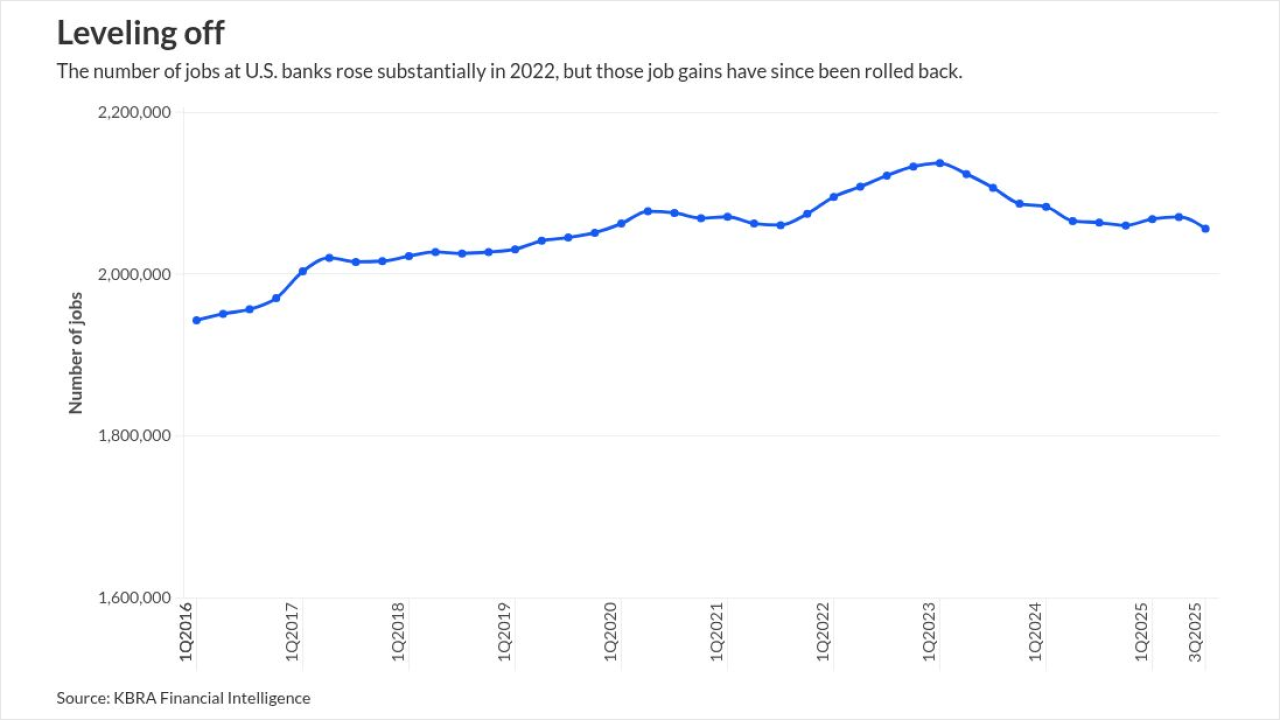Fluctuating tariffs are taking a measurable toll on U.S. companies, posing challenges for commercial bankers.
A new survey by
"We're really only six or seven weeks after 'Liberation Day,' so it's interesting to see that those costs are already coming through," said Marissa Adams,
Since that day, Trump has alternately imposed, paused or made exceptions to new tariffs on almost 90 U.S. trading partners. The turbulent policies have not only raised the costs of imports but created a highly uncertain economic environment, causing many businesses to pump the brakes on major investments.
"Most corporates are taking a watch-and-wait approach on a short-term basis," Adams said. "They are very much taking it step by step, waiting to see where things happen."
As these companies put their investments on hold, one consequence is slackening demand for commercial loans.
"You're definitely hearing people start to mention a slowdown," said Edward Barry, the CEO of Capital Bank, a community bank based in Rockville, Maryland. "I have heard that other banks are seeing their loan pipelines start to come in a bit from what they thought earlier in the year."
U.S. banks' first-quarter results did not include the impact of Trump's April 2 announcement or its aftermath. The impact on banks' commercial loan portfolios should start to become clearer in the coming weeks. Many banks are scheduled to present at a Morgan Stanley conference during the second week of June.
The silver lining to
"Despite some of these challenges around costs, despite the challenges around the uncertain environment, U.S. firms are really confident and pivoting in a way that is quite uniquely American," Adams said.
Among the U.S. companies
Nevertheless, most U.S. companies still expect tariff-related costs to increase by the end of 2025. That could partly be due to the 90-day pauses on many of Trump's tariffs, which are set to expire this summer. But there may also be other reasons — including new labor costs.
"There's a lot of types of goods and services that have never been subject to a tariff before," Adams said. "And just the act of having to file for that process, those customs duties, pay them, is actually quite a bit of labor."
In addition, some companies have found that the fluctuations in trade policy have raised their expenses in unexpected places. "Particularly in the consumer goods sector, many companies had proactively shifted some of their supply chain," Adams said. "So the cost is going up because those particular suppliers in those countries are meeting more demand, and therefore they can ask for a bigger price."
As the tariffs and their consequences continue to evolve, 52% of American companies are having trouble predicting their costs or demand for the year ahead,
"The crystal balls are pretty opaque these days," Barry said. "I think bankers everywhere need to be asking themselves, where's the risk?"







